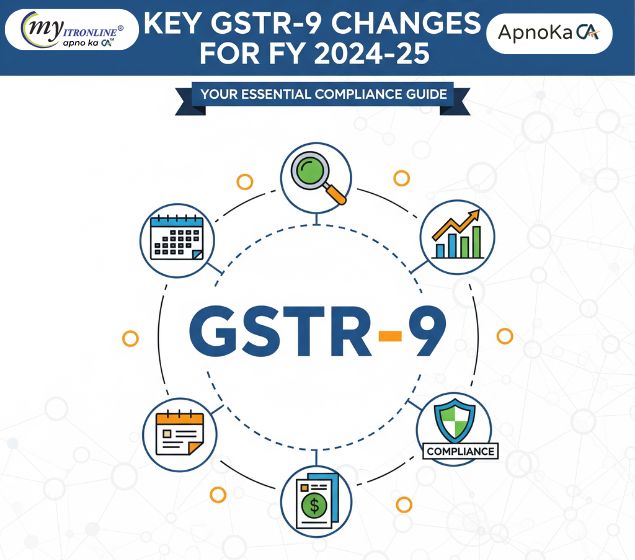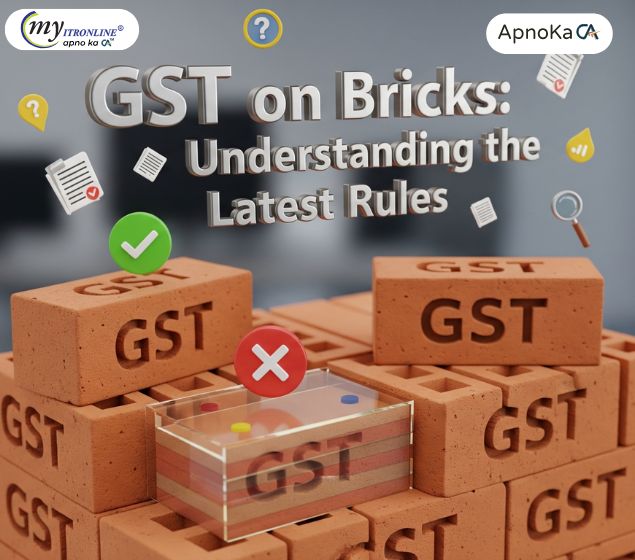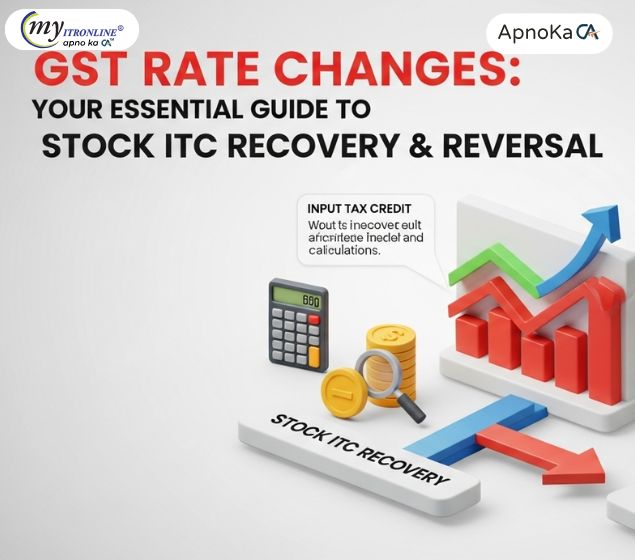# inputtaxcredit
12 posts in `inputtaxcredit` tag

Key GSTR-9 Changes for FY 2024-25: Your Essential Compliance Guide
The GST landscape for FY 2024-25 sees major updates to GSTR-9 and GSTR-9C. This guide breaks down the structural changes, like the new Table 6A1 for prior-year ITC, revised deadlines, and enhanced reconciliation requirements, ensuring taxpayers stay compliant and avoid late fees.

Supreme Court Relief: Buyer Not Liable for Seller’s Default on ITC
The Supreme Court has clarified that a genuine buyer cannot be denied Input Tax Credit (ITC) merely because the seller failed to deposit tax. In the case of Commissioner Trade & Tax Delhi vs. Shanti Kiran India Pvt. Ltd., the Court emphasized that if purchases are genuine, invoices valid, and payments made through banks, ITC should not be denied. This ruling strengthens taxpayer rights and prevents innocent buyers from being penalized for the seller’s default.

Supreme Court Backs Genuine Buyers: No ITC Denial for Seller’s Default
The Supreme Court has ruled that genuine buyers cannot be denied Input Tax Credit just because the seller failed to deposit tax or lost registration. This landmark decision under DVAT sets a strong precedent for GST cases too, ensuring fairness and protecting honest taxpayers.

GST on Bricks: Understanding the Latest Rules
This blog post clarifies the latest GST rules for bricks in India, effective September 22, 2025. It details the two tax options for most brick types (6% without ITC under composition scheme or 12% with ITC under regular scheme) and introduces a special 5% GST rate with ITC for sand-lime bricks, which cannot opt for the composition scheme. The article also highlights the crucial annual turnover threshold of ₹20 lakh for GST registration. It explains the importance of these changes, who is affected, the pros and cons, and provides actionable advice for businesses, including checking turnover, correct brick classification, scheme selection, pricing adjustments, and record-keeping. Finally, it discusses the implications for buyers and builders and outlines potential issues such as classification disputes and transitional challenges.

GST Rate Changes: Your Essential Guide to Stock ITC Recovery & Reversal
This blog post provides a comprehensive guide to the upcoming GST rate changes in India, effective 22 September 2025, focusing specifically on the implications for Input Tax Credit (ITC) on stock. It explains the new simplified tax slab structure (5%, 18%, 40% for luxury goods) and details how businesses should handle ITC for stock purchased before the changes, supplies made after the changes, and unsold old inventory. The post offers practical advice on identifying stock, claiming eligible ITC, reversing ITC where necessary, seeking manufacturer support, and maintaining audit-ready records to navigate this significant tax transition effectively.
.jpg)
Mandatory ISD Registration Under GST from April 1, 2025: Who is Affected?
This blog offers a detailed examination of the compulsory ISD registration under GST, which begins on April 1, 2025. It discusses the importance, the registration procedure, and the effects on businesses. Keep yourself updated and compliant with this thorough guide.
.jpg)
GST Rules for Casual and Non-Resident Taxpayers: A Detailed Comparison
This blog offers an in-depth comparison between Casual Taxable Persons (CTP) and Non-Resident Taxable Persons (NRTP) within the framework of GST. It discusses their definitions, registration procedures, compliance obligations, Input Tax Credit (ITC), and operational characteristics for both groups. Stay updated and adhere to regulations with this all-encompassing guide.
.jpg)
Avoid These 10 Costly Errors When Filing Your GST Returns
Businesses must appropriately file GST returns in order to avoid fines and compliance problems. The top ten typical errors committed while completing a GST return are highlighted in this blog, including late filings, mismatched ITC claims, and inaccurate invoice data. Find out how to avoid these mistakes and guarantee smooth GST compliance.
.jpg)
Rule 86B Explained: How ITC Utilization is Limited Under GST
The CGST Rules 2017's Rule 86B, which restricts the use of Input Tax Credit (ITC) to settle GST liabilities, is thoroughly explained in this article. Along with useful examples and advantages, it discusses the rule's objectives, applicability, exemptions, and effects on businesses.
.jpg)
Understanding the Impact of GSTR-2A on Input Tax Credit (ITC) Claims
In order to claim the Input Tax Credit (ITC) under GST, GSTR-2A is essential. This blog discusses optimal procedures to guarantee compliance and optimize ITC advantages, the significance of reconciliation, and how GSTR-2A affects ITC claims.
.jpg)
Major ITC Changes Unveiled at 55th GST Council Meeting: Impacts on Key Industries
Important modifications to the Input Tax Credit (ITC) regulations were introduced during the 55th GST Council Meeting, which had a big effect on the auto and construction sectors. Clarifications of eligibility, limitations on ITC for personal use, sector-specific actions, and improved compliance procedures are some of the most important revisions. The purpose of these modifications is to promote transparency in GST compliance and expedite ITC applications.
.jpg)
Hospitality Sector GST Reforms: Key Changes for 2025
Changes to the hotel and restaurant tax structure, which will take effect on April 1, 2025, have been announced by the GST Council. By eliminating the idea of a "declared tariff" and tying GST rates to actual room tariffs, the amendments seek to make compliance easier. To meet their business objectives, hotels can select from a variety of GST arrangements. Find out how the hospitality industry will be affected by these developments and what hotels need to do to get ready.
